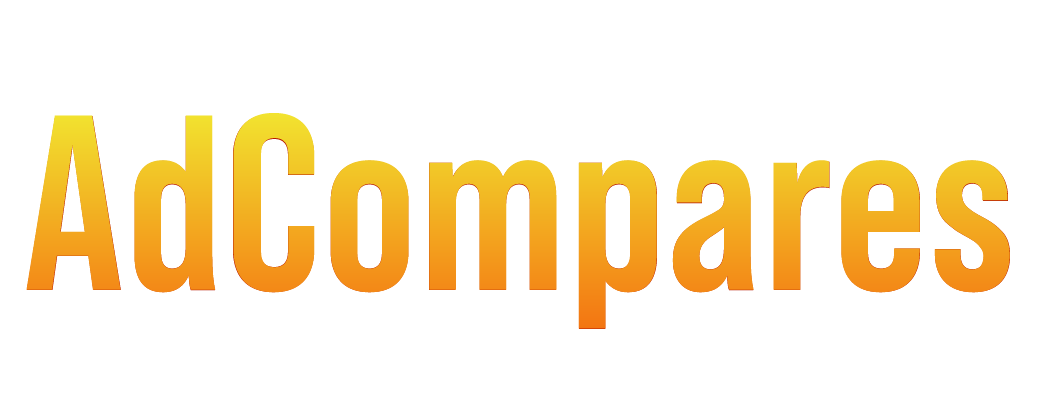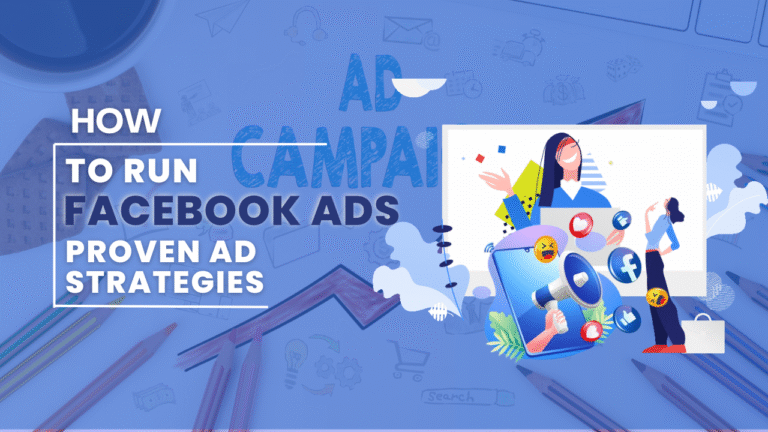In 2026, Facebook Ads continue to dominate the digital marketing world, with over 3 billion active users scrolling, clicking, and engaging daily. Businesses, influencers, and even small startups rely on Facebook advertising to reach their audience, boost brand awareness, and generate consistent sales. However, the way ads perform has changed compared to earlier years. Rising competition, stricter ad policies, and advanced targeting features mean you need a smarter strategy to succeed.
This guide will show you exactly how to run Facebook ads in 2026 with step-by-step strategies, updated policies, creative trends, and tools like Meta Events Manager. Whether you’re using a fresh account or considering aged Facebook ad accounts, this article will help you understand what works and what doesn’t in the modern advertising landscape.
What Are Facebook Ads?
Facebook Ads are paid promotions that allow businesses, influencers, and creators to showcase their products, services, or content directly in users’ feeds, Stories, Reels, or Messenger. Unlike organic posts, which rely on followers and engagement, Facebook ads reach targeted audiences based on demographics, interests, behaviors, and online activity. In 2026, Facebook advertising will have become increasingly data-driven, offering advanced tools to track performance and maximize ROI.
How Do They Work?
Facebook ads are managed through Ads Manager and Meta Events Manager, which allow advertisers to create, monitor, and optimize campaigns. Ads can be customized based on specific objectives such as:
- Awareness: Introduce your brand to a wider audience.
- Traffic: Drive users to your website, landing page, or app.
- Conversions: Encourage users to take actions like purchases or sign-ups.
- Lead Generation: Collect contact information from potential customers.
Many users ask, “Why is my Facebook feed all ads?” — This happens because Facebook prioritizes sponsored content from businesses that pay to reach targeted audiences. With these tools, marketers can measure engagement, track conversions, and adjust campaigns to improve results.
Setting Up a Facebook Ad Account in 2026
Before you can launch any campaign, having a Facebook Ad Account is essential. In 2026, account setup has become more streamlined, but advertisers must understand the differences between new and aged accounts to ensure smooth campaign performance.
New accounts are easy to create and verify, but they often face initial limitations until credibility and trust are established. On the other hand, aged Facebook ad accounts,older accounts with a history of clean ad activit,y tend to enjoy higher trust and fewer restrictions. Some marketers choose to buy aged Facebook ad accounts to speed up campaign launches, though this comes with risks if not sourced from legitimate providers.
It’s also important to avoid shortcuts like buying Facebook accounts or reviews. While this may seem like a quick way to boost credibility, it violates Facebook policies and can lead to account bans due to fake engagement.
Tips for a Safe and Effective Setup:
- Build an authentic ad account with real credentials.
- Stay compliant with Facebook’s ad policies and community standards.
- Maintain consistent ad spend to gradually increase account credibility.
- Focus on genuine engagement rather than shortcuts for faster approval.
By following these steps, advertisers can ensure their account is trustworthy, fully compliant, and ready to run high-performing campaigns in 2026.
Facebook Ad Copy Strategies 2026
In 2026, ad copy is one of the most critical elements of a successful Facebook campaign. It determines whether users stop scrolling and engage with your ad or move on. Strong ad copy doesn’t just inform—it persuades and motivates action, turning casual viewers into loyal customers.
Best Practices for 2026:
- Use Emotional Triggers: Leverage curiosity, urgency, or fear of missing out (FOMO) to capture attention.
- Keep the Message Clear and Concise: Users should understand your offer immediately without confusion.
- Include Social Proof: Highlight testimonials, reviews, or results to build credibility.
- Focus on Benefits, Not Just Features: Show users how your product or service solves a problem or improves their life.
For example, a weak ad might simply say: “Buy our product today!”
A compelling 2026 version would be: “Struggling to find a reliable tool? Join 10,000+ users who’ve doubled productivity with our AI-powered system.”
While Facebook ad copy strategies in 2024 often relied on short, urgent messages, 2026 emphasizes storytelling, authenticity, and building trust. Ads that connect emotionally and provide real value are more likely to convert and drive higher ROI.
Facebook Ads Targeting Best Practices in 2026
Targeting is the backbone of successful ads. Without the right audience, even the best copy fails.
- Core Targeting: Age, gender, location, and interests.
- Custom Audiences: Upload customer lists, retarget website visitors, or engage with previous leads.
- Lookalike Audiences: Find users similar to your best customers.
- Meta Events Manager: Helps track user actions (purchases, clicks, sign-ups) for smarter targeting.
Pro Tip: Test small audience groups first, then scale campaigns based on results.
Facebook Ads Budget & Bidding Strategies
A common question among advertisers is: “How much should I spend on Facebook ads in 2026?” The answer depends on your goals, audience, and campaign strategy. Starting with a small budget allows you to test different ad creatives, audiences, and strategies before committing more funds.
Key Budgeting Tips:
- Start Small: Allocate $5–$20 per day initially and scale only after identifying ads that perform well.
- Use the Right Budget Type: Daily budgets are ideal for testing, while lifetime budgets work better for long-term campaigns.
- Choose Bidding Wisely: Select CPC (cost per click), CPM (cost per 1,000 impressions), or CPA (cost per acquisition) based on your campaign objectives.
- Monitor ROI Closely: Never increase spending without confirming your campaigns are profitable.
Scaling in 2026 requires patience. Many beginners fail because they increase budgets too quickly, wasting money on untested campaigns. By testing first, analyzing results, and adjusting carefully, you can maximize ROI while minimizing risk.
Facebook Ads Mistakes to Avoid in 2026
Many advertisers struggle with Facebook ads due to avoidable mistakes that reduce engagement and ROI. One common user concern is: “Why is my Facebook feed all ads?” This often happens because businesses overuse poor targeting, creating spam-like experiences for users.
Users can also hide or block ads, which directly affects engagement rates and overall account performance. To avoid this, advertisers need to understand common mistakes and address them proactively.
Common Mistakes to Avoid:
- Over-Targeting: Narrow audiences too much, limiting reach, and increasing ad fatigue.
- Low-Quality Visuals: Blurry, irrelevant, or poorly designed images reduce click-through rates.
- Copy-Pasting Old Strategies: Using 2024 ad copy or tactics without updating them for 2026 trends.
- Ignoring Compliance Policies: Violating Facebook’s ad rules can lead to account restrictions or bans.
If your ads appear spammy or irrelevant, users may block or report them, negatively impacting your account’s credibility and performance.
Managing Ads with Facebook Advertising Tools
Running campaigns without proper tools is like navigating without a compass. In 2026, mastering Facebook’s advertising tools is crucial for successful campaigns:
- Facebook Ads Manager: The main platform to create, monitor, and optimize campaigns.
- Meta Events Manager: Essential for conversion tracking, pixel setup, and measuring real customer actions.
- Third-Party Tools: Analytics dashboards, ad automation software, and creative testing platforms help improve performance and scale campaigns effectively.
For serious advertisers, mastering these tools is non-negotiable to maximize ROI, track audience behavior, and stay competitive in 2026.
Policy & Compliance in 2026
In 2026, Facebook has strengthened its advertising policies, making compliance more important than ever for marketers and content creators. Following the rules not only protects your ad account from penalties but also builds credibility and trust with your audience.
Key Compliance Rules:
- Avoid Misleading or Clickbait Ads: Ads that exaggerate claims or mislead users can result in account restrictions or permanent bans.
- Respect Copyrights: Using copyrighted images, videos, or music without permission is strictly prohibited. Always use original content or licensed materials.
- No Fake Accounts, Reviews, or Engagement: Buying accounts, reviews, or artificially inflating engagement violates Facebook Partner Policies and can lead to severe penalties.
- Ad Transparency: Users often ask, “How do I delete ad activity on Facebook?” While they can clear ad activity from their account settings, advertisers must remain transparent about how data is used and avoid deceptive targeting.
By adhering to these rules, advertisers not only protect their accounts but also create campaigns that feel authentic and trustworthy, improving long-term engagement and performance.
Alternatives & Comparisons
In 2026, businesses often compare Facebook Ads with other advertising platforms to determine where their marketing budgets will perform best. Each platform has unique strengths, but understanding the differences helps advertisers make strategic decisions.
Platform Comparisons:
- YouTube Ads: Excellent for long-form storytelling, brand awareness, and engaging audiences with video content.
- TikTok Ads: Ideal for viral, short-form content that captures attention quickly, though earnings can be inconsistent for smaller advertisers.
- Google Ads: Best for targeting users with high purchase intent through search queries and intent-based traffic.
- Instagram Ads: Perfect for lifestyle, fashion, and visual products, but monetization tools and campaign flexibility are more limited compared to Facebook.
Facebook’s biggest advantage in 2026 lies in its all-in-one ecosystem. With multiple ad placements—Feeds, Stories, Reels, Messenger, diverse monetization tools, and access to a massive global audience, Facebook provides advertisers with flexibility and scalability unmatched by other platforms.
Conclusion
Running Facebook Ads in 2026 is no longer just about boosting posts; it requires a strategic approach that combines creativity, data-driven targeting, and strict adherence to Facebook’s monetization and advertising policies. From setting up a Facebook ad account,whether a new or an aged Facebook ad accountto leveraging advanced tools like Meta Events Manager and the Facebook Ads Manager, every step plays a crucial role in campaign success. Advertisers must focus on originality, experiment with different ad copy strategies, and continuously test audiences and creatives to maximize ROI while avoiding common mistakes such as over-targeting or using low-quality visuals.
The key to long-term success lies in building authentic engagement, writing compelling ad copy, and using Facebook advertisingmanagement tools effectively. By staying compliant, monitoring performance, and scaling campaigns smartly, businesses and creators can achieve high-converting ads that generate consistent revenue. Ultimately, Facebook Ads in 2026 offer unparalleled growth opportunities, provided advertisers combine strategy, compliance, and innovation to make the most of this powerful platform.
Frequently Asked Questions (FAQs)
What are aged Facebook ad accounts?
Aged accounts are older Facebook advertising accounts with a history of ad spending and policy compliance. They are often more stable than new accounts, but can be risky if purchased illegally.
Is it safe to buy Facebook reviews or accounts?
Buying reviews or accounts violates Facebook’s policies. While it may seem like a shortcut, it can result in account suspension and a damaged reputation.
How do I stop ads on Facebook if I’m a user?
You can hide or block ads by adjusting settings in your Facebook feed. This helps reduce the number of irrelevant ads you see.
How do I check my ad performance in 2026?
Use Facebook Ads Manager and Meta Events Manager to track impressions, clicks, conversions, and ROI. These tools give detailed insights into campaign success.
How do I remove or delete ad activity on Facebook?
You can delete your personal ad activity from account settings. However, advertisers cannot erase user interactions from their side.

